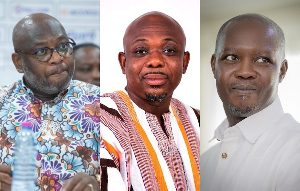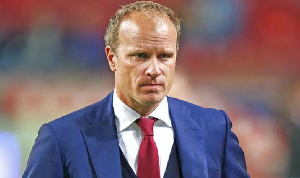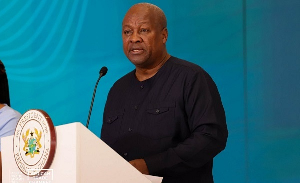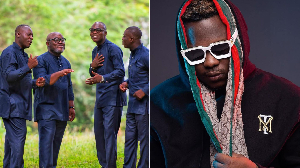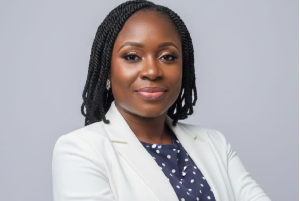......The Numerous Flaws Of Ghanaian Journalists Make You Wonder.
By: Otchere Darko
The recent flawed reportage of an alleged “mass rape of women on an Accra-Tamale bus”, which is now being claimed to have been “concocted”, typifies the inefficiency of journalists and media practitioners in Ghana. Readers who read my 4th October Ghanaweb feature article will recollect that I criticised the use, by the Mills’ NDC Government, of this alleged rape incidence to repeat its constant use of “conspiracy theories” to explain almost every “riddle” or “misfortune” that affects that administration and how it always tries to build those “conspiracy theories” around their “perceived enemies” who are either inside or outside NDC. I did compare this habit of pro-Mills’ NDC members to the tactics used by Napoleon in George Orwell’s “Animal Farm”. In the first part of today’s article, I want to bring out the journalistic lapses in the mass rape case and use them as illustration to draw the attention of readers to how the media contribute, directly or indirectly and knowingly or unknowingly, to the feeding of NDC with the ammunition it always looks for, to create its “conspiracy theories”.
*When Amina made the report to Adom FM, the news reporter should not have rushed to report the story which was said to have happened on 11th October 2010 and which had previously been reported to Ejisu Police. He should have first verified it with the police. Since Ejisu Police was aware of only the robbery part of the story, they would have noted the contradiction and would have wanted to question the lady to verify its authenticity. A good reporter would have waited for the police to question Amina and investigate her version before breaking the [then] verified news to the public. Alternatively, a good reporter could have reported the two contradictory versions of the same story to the public, after having first given Amina’s version to the police and helped them to reach her to interview and investigate her version. The police would have known about the “mass rape” and would not have been surprised to read about it in the news. Without verification with the police, on 28th November 2010, which was 17 days after the event, this Adom FM reporter broke to Ghanaians and the world at large this story, as if he, the reporter, was hundred percent sure of it. The failure of the reporter to verify the story with the police first also meant the latter heard about the “mass rape” bit as a reported news item, rather than as a first-hand “complaint”.....which should be shocking to them, since that was not the right way for an “alleged criminal offence” to be handled. So, what could have motivated this reporter to rush to report this “mass rape”, without first verifying it.....an omission which was contrary to the basic principles of journalism? Did he have a non-professional motive? When there is no clarity, a disturbed mind develops theories to solve a riddle! *Irresponsible journalism is, certainly, partly to be blamed for the numerous “conspiracy theories” of Mills’ NDC administration.
In my opinion, the three most influential journalists in Ghana are Kwesi Pratt, Kweku Baako and Raymond Archer. *[I say this with full apology to other Ghanaian journalists!] Some readers may disagree with me. I do accept this. The disagreement, however, is not important for the theme of this article. What is important is the fact that, despite the high rating I have given these three journalists, every time I come across their newspapers, or articles written by them, or contributions they have made during radio or TV panel discussions, I sketchily take notice of them. I do not read or listen for their views with enthusiasm. The reason is because I can always predict, [and always correctly], what they are going to say; who they are going to back; and who they are going to attack. In other words, they are biased in their work. They are not worth their profession, in my view. I do not, therefore, waste much time on them, or on their views.
Journalism is supposed to be one of the noblest and most respected professions in the [free] world. Journalists may not spend as many years of their lives as part of their training, as some other professionals do, but they always stand as tall as professionals like doctors, engineers, accountants, etc; not in terms of earnings, but in terms of their social standing. Kwesi Pratt, Kweku Baako and Raymond Archer may be as familiar to most Ghanaian elite as local and national dignitaries are. My children who were at Achimota School up to 2004 told me how their teachers repeatedly asked them whether their father was Gabby Otchere-Darko, who was then the Managing Editor of the Statesman, and now at the Danquah Institute. Even up to this day, Gabby constantly gets credit, [or blame], for many articles I write. This fame associated with journalists is a result of their profession, which quickly puts them in the public eye and, accordingly, quickly accords them “public-figure” status. JOURNALISM IS THEREFORE ONE OF THE BEST PROFESSIONS ANY GHANAIAN COULD ASPIRE FOR. This fact, notwithstanding, journalists in Ghana have, through abuse of their work, dented their “noble profession” and made it look as “smelly” as politics.
One should wonder, for example, why our vociferous and self-proclaimed “defender of the truth”, Kwesi Pratt, who constantly attacks and accuses the Kufuor administration of corruption can have the gut and the conscience to believe that he is a good journalist, [which I think he believes he is], when he constantly defends Mills’ administration, but has never condemned, for example, the 12 NDC members who were sent to Korea as a Government delegation in connection with the STX deal and disgracefully accepted bribes of $2000 each from STX officials, with whom they were going to negotiate an important international deal, and who later defended their shameful act with the weakest argument that the monies they received were “gifts given to them for shopping”. Why did the “sharp ears” and “Socratic mind” of Kwesi Pratt fail to capture and query this clear case of bribery and corruption? Again, this same vociferous and self-proclaimed “defender of the truth”, Kwesi Pratt, could not muster courage to condemn a rather “smaller person”, like a Deputy Minister when he, the Deputy Minister, used implicitly-generalised and ethnically-charged and explosive insults on residents of Kumasi and Ashanti, even though he, Kwesi Pratt, did not lack the courage to condemn the Asantetene about a year ago when the latter made an “ethnically-charged” statement which, like the Deputy Minister’s insults, had the potential to explode into an ethnic conflagration. If these two cited actions and omissions of Kwesi Pratt are not examples of political and ethnic bias, then what else are? And Raymond Archer, who found time to criticise and assert publicly that Mrs Rawlings is not qualified to be President of Ghana, has not as yet found it necessary to criticise the more qualified Professor Mills about these two cited serious political blunders of Mills’ NDC administration, besides the many other blunders known to all readers, none of which the Editor of the Enquiry newspaper, nor his “comrade in service”, Kwesi Pratt, has dared to criticise Mills for. Are these two “Big Editors” fit to be called “professional journalists”? Or they are mere political propaganda agents for Mills’ NDC?
We may now turn to the other side of the divide, where there is Kweku Baako of the New Crusading Guide. Gallant like a soldier and cunning like a fox, Kweku Baako never spares a moment to take on and criticise any action or omission of the Rawlingses or the NDC administration of Mills. From any length of distance of observation, this daring and witty critic of the Rawlingses and NDC, Kweku Baako, can, for example, use his sharp eyes to see and capture “Nana Konadu & Co. ‘Caught Pants Down’”, [Ghanaweb News; Thursday, 4th November; Source: New Crusading Guide]. However, when it comes to the NPP or the former Kufuor administration, Kweku Baako strangely appears to have lost his “whip” and “wit”. Or rather, he seems to use his “eagle eyes” only to see the good side of NPP and Kufuor’s administration, but not their bad side. When it came, [or comes], to discussions concerning clear NPP abuses like the “stealing” of State vehicles, “stealing” of furnishings in the Speaker’s official accommodation, or “grabbing” of divested State lands by NPP MPs, or former Ministers of Kufuor’s administration, Kweku Baako was, [or is], either always quiet, or always defensive. Is “Kweku” also a “professional journalist”, or a paid propaganda agent for NPP, or just an “Ananse” doing his own “mischief”?
I have chosen the three journalists to build my case, not because I have any personal animosity towards them; nor is it because the three are alone in pursuing these non-professional journalistic practices in Ghana. Rather, it is because the three are top-names in Ghanaian media and, therefore, they broadly epitomise Ghanaian journalism and help to give a vivid image of the nature of journalists in this country. As leading members in the media business, they also serve as “path-cutters” for newly qualified and student journalists in Ghana. Readers will understand, therefore, why I used them to illustrate the lapses I am talking about in Ghanaian journalism. The theme of this article, though, applies generally to all Ghanaian journalists and media practitioners, and not only the three.
Fair and balanced press is a vital pillar of democracy. When the press of a country is split into two halves, with each half always permanently backing either the Government or the opposition; or when journalists allow themselves to be “bought” to work for politicians and political parties, as it seems to be happening in Ghana, then the “real cost” of their behaviour to the nation becomes the sacrifice of democracy, good governance and national progress. In the past one year or two, UK’s Telegraph newspaper attacked political abuses in Britain, with unqualified commitment. The paper fully investigated claims made in the names of all British MPs, irrespective of whether they were members of Labour or Conservative or the Liberal Democratic Party. It then came out with authentic series of reports on “false claims” made by all members of the two Houses who abused the parliamentary allowance system. This is what we call “professional journalism”. And this is what journalists and media practitioners in Ghana, [and elsewhere], should be doing.....giving [the public] independent, unbiased, fully verified, and fully authenticated information. Anything less, or different is not professionally acceptable. Ghanaian journalists and media practitioners, big and small, should not offer anything less than, or different from “professional journalism”.
Source: Otchere Darko. [This writer is a centrist, semi-liberalist, pragmatist, an advocate for “inter-ethnic cooperation and unity” and a community-based development protagonist. He opposes the negative, corrupt, and domineering politics of NDC and NPP; actively campaigns for the development and strengthening of “third parties”; and opposes a two-party system of democracy in Ghana.]
Opinions of Saturday, 6 November 2010
Columnist: Otchere Darko


